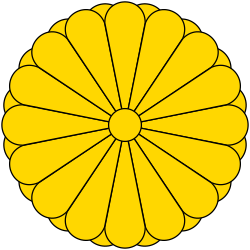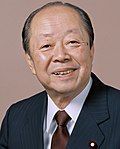You can help expand this article with text translated from the corresponding article in Japanese. (July 2022) Click [show] for important translation instructions.
|
| |||||||||||||||||||||||||||||||||||||||||||||||||||||||||||||||||||||||||||||||||||||||||||||||||||||||||||||||||||||||||||||||||
126 of the 252 seats in the House of Councillors 127 seats needed for a majority | |||||||||||||||||||||||||||||||||||||||||||||||||||||||||||||||||||||||||||||||||||||||||||||||||||||||||||||||||||||||||||||||||
|---|---|---|---|---|---|---|---|---|---|---|---|---|---|---|---|---|---|---|---|---|---|---|---|---|---|---|---|---|---|---|---|---|---|---|---|---|---|---|---|---|---|---|---|---|---|---|---|---|---|---|---|---|---|---|---|---|---|---|---|---|---|---|---|---|---|---|---|---|---|---|---|---|---|---|---|---|---|---|---|---|---|---|---|---|---|---|---|---|---|---|---|---|---|---|---|---|---|---|---|---|---|---|---|---|---|---|---|---|---|---|---|---|---|---|---|---|---|---|---|---|---|---|---|---|---|---|---|---|---|
| |||||||||||||||||||||||||||||||||||||||||||||||||||||||||||||||||||||||||||||||||||||||||||||||||||||||||||||||||||||||||||||||||
| |||||||||||||||||||||||||||||||||||||||||||||||||||||||||||||||||||||||||||||||||||||||||||||||||||||||||||||||||||||||||||||||||
| This article is part of a series on |
 |
|---|
|
|
House of Councillors elections were held in Japan in 1992. Only half of the seats in the House of Councillors were up for election.
Results
[edit] | ||||||||||||
|---|---|---|---|---|---|---|---|---|---|---|---|---|
| Party | National | Constituency | Seats | |||||||||
| Votes | % | Seats | Votes | % | Seats | Not up | Won | Total after | +/– | |||
| Liberal Democratic Party | 14,961,199 | 32.97 | 19 | 19,711,047 | 43.43 | 48 | 39 | 67 | 106 | –3 | ||
| Japan Socialist Party | 7,981,726 | 17.59 | 10 | 5,846,238 | 12.88 | 12 | 49 | 22 | 71 | +5 | ||
| Kōmeitō | 6,415,503 | 14.14 | 8 | 3,550,060 | 7.82 | 6 | 10 | 14 | 24 | +4 | ||
| Japan New Party | 3,617,247 | 7.97 | 4 | 0 | 4 | 4 | New | |||||
| Japanese Communist Party | 3,532,956 | 7.78 | 4 | 4,817,001 | 10.61 | 2 | 5 | 6 | 11 | –3 | ||
| Democratic Socialist Party | 2,255,423 | 4.97 | 3 | 1,039,980 | 2.29 | 1 | 3 | 4 | 7 | –1 | ||
| Sports and Peace Party | 1,375,791 | 3.03 | 1 | 1 | 1 | 2 | +1 | |||||
| Dainiin Club | 1,321,639 | 2.91 | 1 | 1 | 1 | 2 | 0 | |||||
| Democratic Reform Party | 4,399,684 | 9.69 | 0 | 12 | 0 | 12 | 0 | |||||
| Other parties | 3,921,722 | 8.64 | 0 | 1,573,400 | 3.47 | 2 | 2 | 2 | 4 | – | ||
| Independent | 4,445,795 | 9.80 | 5 | 3 | 5 | 8 | –7 | |||||
| Vacant | 1 | 0 | 1 | 1 | – | |||||||
| Total | 45,383,206 | 100.00 | 50 | 45,383,205 | 100.00 | 77 | 125 | 127 | 252 | 0 | ||
| Valid votes | 45,383,206 | 95.98 | 45,383,205 | 95.95 | ||||||||
| Invalid/blank votes | 1,900,566 | 4.02 | 1,913,874 | 4.05 | ||||||||
| Total votes | 47,283,772 | 100.00 | 47,297,079 | 100.00 | ||||||||
| Registered voters/turnout | 93,254,025 | 50.70 | 93,254,025 | 50.72 | ||||||||
| Source: Ministry of Internal Affairs and Communications,[1][2] Tottori Prefecture, National Diet | ||||||||||||
By constituency
[edit]| Constituency | Total seats |
Seats won | |||||||||
|---|---|---|---|---|---|---|---|---|---|---|---|
| LDP | JSP | Kōmeitō | JCP | JNP | DSP | SPP | DC | Others | Ind. | ||
| Aichi | 3 | 1 | 1 | 1 | |||||||
| Akita | 1 | 1 | |||||||||
| Aomori | 1 | 1 | |||||||||
| Chiba | 2 | 1 | 1 | ||||||||
| Ehime | 1 | 1 | |||||||||
| Fukui | 1 | 1 | |||||||||
| Fukuoka | 3 | 1 | 1 | 1 | |||||||
| Fukushima | 2 | 2 | |||||||||
| Gifu | 1 | 1 | |||||||||
| Gunma | 2 | 2 | |||||||||
| Hiroshima | 2 | 1 | 1 | ||||||||
| Hokkaido | 4 | 1 | 1 | 1 | 1 | ||||||
| Hyōgo | 3 | 1 | 1 | 1 | |||||||
| Ibaraki | 2 | 1 | 1 | ||||||||
| Ishikawa | 1 | 1 | |||||||||
| Iwate | 1 | 1 | |||||||||
| Kagawa | 1 | 1 | |||||||||
| Kagoshima | 2 | 1 | 1 | ||||||||
| Kanagawa | 2 | 1 | 1 | ||||||||
| Kōchi | 1 | 1 | |||||||||
| Kumamoto | 2 | 1 | 1 | ||||||||
| Kyoto | 2 | 1 | 1 | ||||||||
| Mie | 1 | 1 | |||||||||
| Miyagi | 1 | 1 | |||||||||
| Miyazaki | 1 | 1 | |||||||||
| Nagano | 2 | 1 | 1 | ||||||||
| Nagasaki | 1 | 1 | |||||||||
| Nara | 1 | 1 | |||||||||
| Niigata | 2 | 1 | 1 | ||||||||
| Ōita | 1 | 1 | |||||||||
| Okinawa | 1 | 1 | |||||||||
| Okayama | 2 | 1 | 1 | ||||||||
| Osaka | 3 | 1 | 1 | 1 | |||||||
| Saga | 1 | 1 | |||||||||
| Saitama | 3 | 2 | 1 | ||||||||
| Shiga | 1 | 1 | |||||||||
| Shimane | 1 | 1 | |||||||||
| Shizuoka | 2 | 1 | 1 | ||||||||
| Tochigi | 2 | 2 | |||||||||
| Tokushima | 1 | 1 | |||||||||
| Tokyo | 4 | 1 | 1 | 1 | 1 | ||||||
| Tottori | 1 | 1 | |||||||||
| Toyama | 1 | 1 | |||||||||
| Wakayama | 1 | 1 | |||||||||
| Yamagata | 1 | 1 | |||||||||
| Yamaguchi | 1 | 1 | |||||||||
| Yamanashi | 1 | 1 | |||||||||
| National | 50 | 19 | 10 | 8 | 4 | 4 | 3 | 1 | 1 | ||
| Total | 127 | 68 | 22 | 14 | 6 | 4 | 4 | 1 | 1 | 2 | 5 |
References
[edit]- ^ Table 13: Persons Elected and Votes Polled by Political Parties - Ordinary Elections for the House of Councillors (1947–2004) Archived 2011-03-23 at the Wayback Machine Ministry of Internal Affairs and Communications
- ^ "27-11 Allotted Number, Candidates, Eligible Voters as of Election Day, Voters and Voting Percentages of Ordinary Elections for the House of Councillors (1947-2004)". Ministry of Internal Affairs and Communications. Archived from the original on 2006-01-04.






